In the Mekong Delta region, Ri6 durian type A is priced at 62,000 - 65,000 VND/kg and Ri6 durian type B is priced at 42,000 - 45,000 VND/kg, Ri6 type C is priced at 35,000 VND/kg.
Ri6 VIP type A costs 75,000 VND/kg, type B costs from 60,000 - 65,000 VND/kg, type C costs 40,000 VND/kg.
Thai durian A costs from 100,000 - 105,000 VND/kg, type B costs from 82,000 - 85,000 VND/kg, type C costs from 48,000 - 50,000 VND/kg. Thai durian VIP type A costs from 120,000 - 125,000 VND/kg, type B costs from 105,000 - 110,000 VND/kg, type C is negotiable.
Chuong Bo durian type A costs from 70,000 - 73,000 VND/kg, type B costs from 50,000 - 53,000 VND/kg, type C costs 30,000 VND/kg; Sau Huu durian type A costs 75,000 - 80,000 VND/kg, type B costs 55,000 - 60,000 VND/kg, type C is negotiable.
Musang King durian grade A costs from 135,000 - 140,000 VND/kg, grade B costs from 115,000 - 120,000 VND/kg, grade C is negotiable. Black Thorn durian grade A costs from 125,000 - 135,000 VND/kg, grade B costs from 105,000 - 120,000 VND/kg, grade C is negotiable.
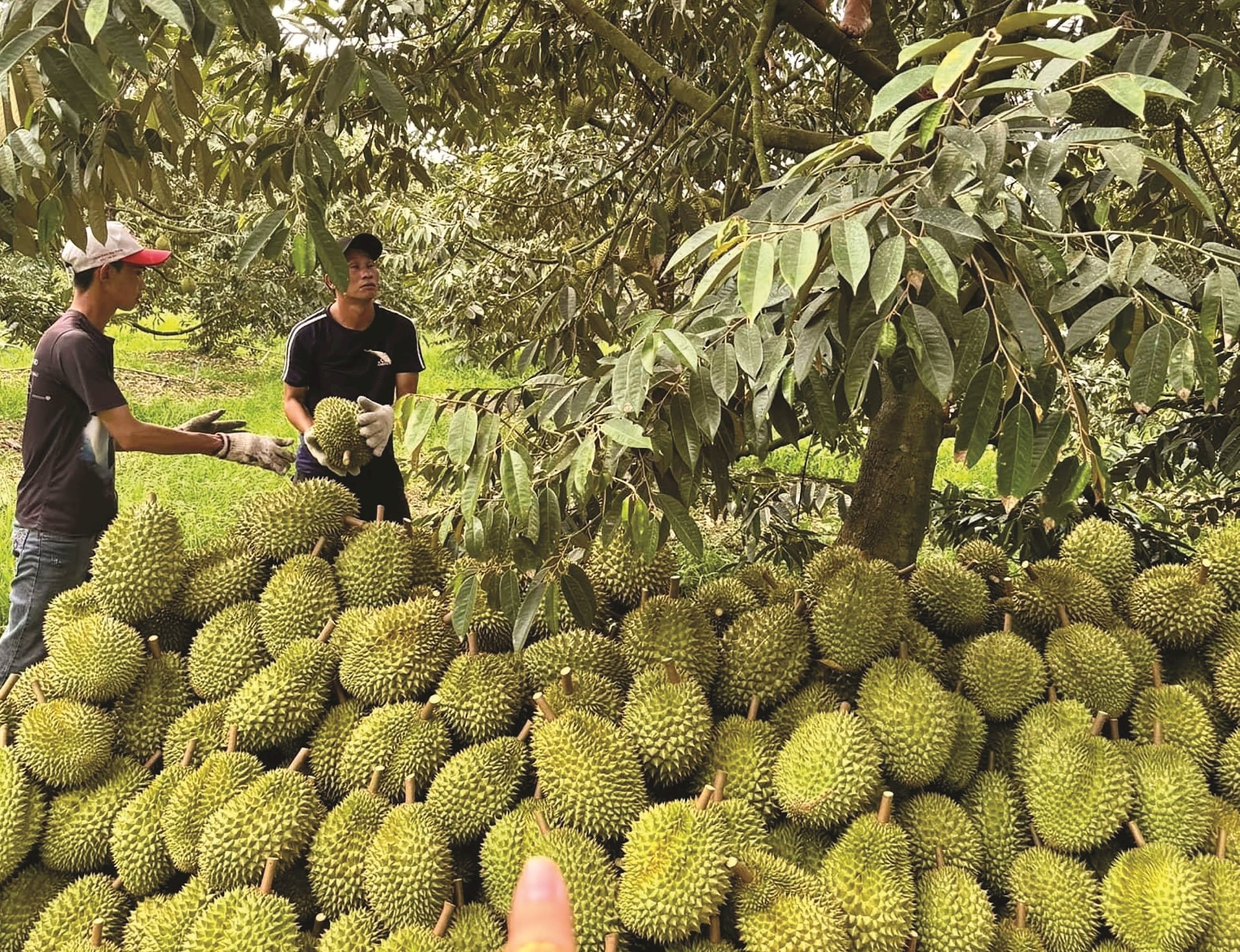
In the Southeast region, the price of Ri6 A durian ranges from 62,000 - 65,000 VND/kg, type B ranges from 42,000 - 45,000 VND/kg, type C ranges from 35,000 VND/kg. Thai durian type A ranges from 100,000 - 105,000 VND/kg, type B ranges from 82,000 - 85,000 VND/kg, type C ranges from 48,000 - 50,000 VND/kg.
In the Central Highlands, Ri6 A durian costs 62,000 - 65,000 VND/kg, type B costs 40,000 - 45,000 VND/kg, type C costs 30,000 - 35,000 VND/kg. Thai durian type A costs 100,000 - 105,000 VND/kg, type B costs 82,000 - 85,000 VND/kg, type C costs 48,000 - 50,000 VND/kg.
Durian prices today remain stable in major growing regions across the country, according to a survey from chogia.vn, but the short-term outlook shows clear signs of differentiation, especially in the context of Thai durian exports facing difficulties due to strict inspection regulations from China.
On April 7, Ekaphap Phonsue, a spokesman for Thailand's Ministry of Agriculture and Cooperatives, said reports that there were no more laboratories in Thailand that could provide pre-export testing of durians due to the suspension by China were incorrect.
Four labs remain available, with five others awaiting approval from GACC. Two labs are also requesting to resume testing, according to the Nation.
He said Thailand has also asked China to ease inspection procedures for durian from Thailand but has yet to receive a response.
BY2 is a yellow powdery organic compound commonly used to dye fabrics, paper, leather and house paint. The World Health Organization (WHO) has classified it as a group 2B carcinogen.
If Thai exporters do not provide laboratory test reports confirming the absence of BY2, Chinese customs at all inspection stations will reject durian cargo.
Ekaphap stressed that the ministry is actively addressing the situation and urged farmers to rely on official information from the ministry, as online reports can be confusing.
Meanwhile, Agriculture and Cooperatives Minister Narumon Pinyosinwat expressed concern over the export of durian to China and assured that there are enough laboratories to handle the large volume expected in May.
Exporters can check the list of authorized laboratories for BY2 and cadmium testing on the ministry's official website, Mr. Narumon said.
Source: https://baodaknong.vn/gia-sau-rieng-hom-nay-11-4-dao-dong-trong-khoang-60-000-180-000-dong-kg-doi-voi-loai-dep-248996.html


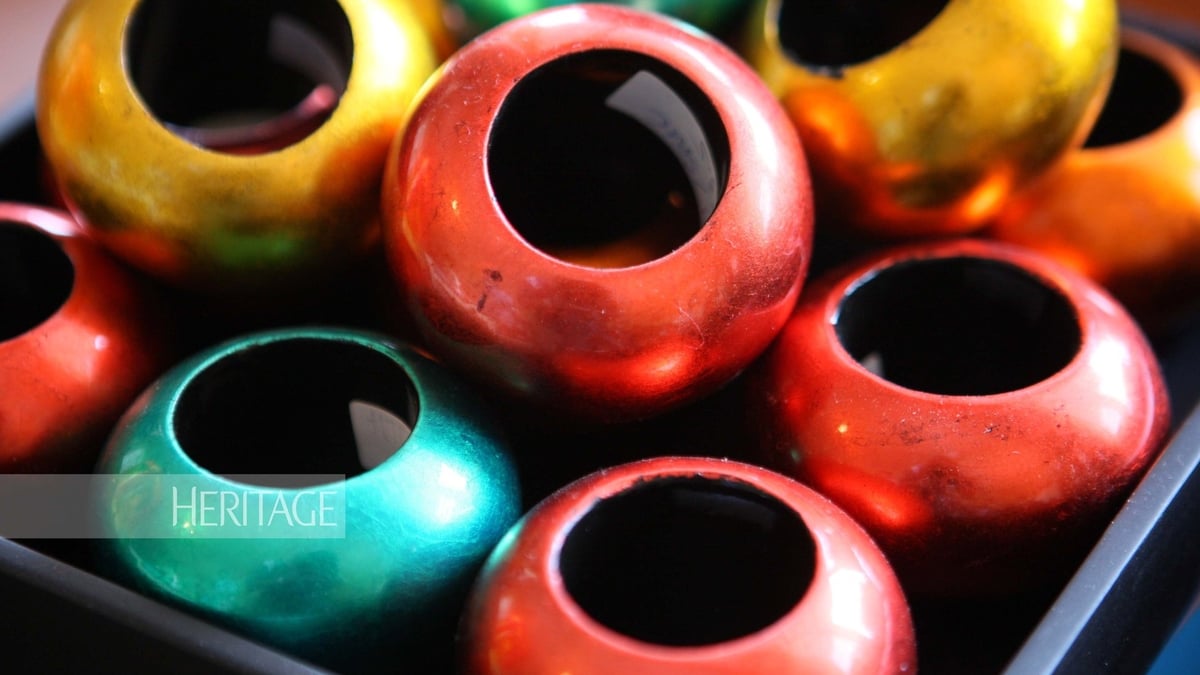
![[Photo] Magical moment of double five-colored clouds on Ba Den mountain on the day of the Buddha's relic procession](https://vphoto.vietnam.vn/thumb/1200x675/vietnam/resource/IMAGE/2025/5/9/7a710556965c413397f9e38ac9708d2f)




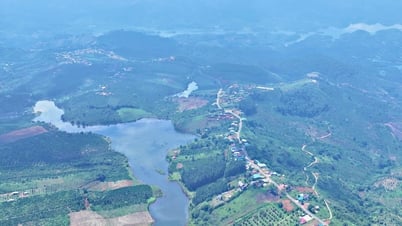
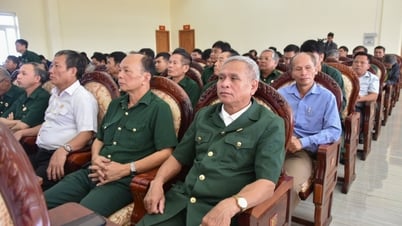

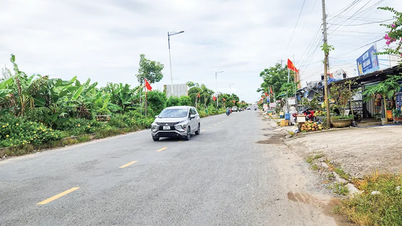

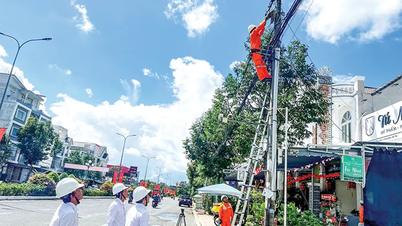




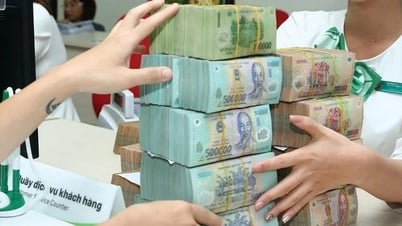
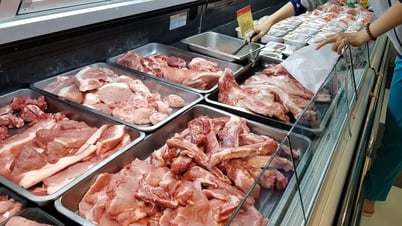

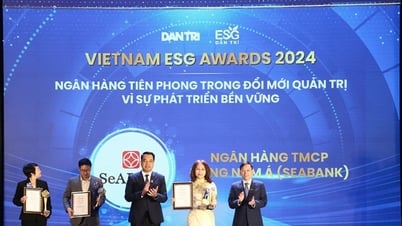
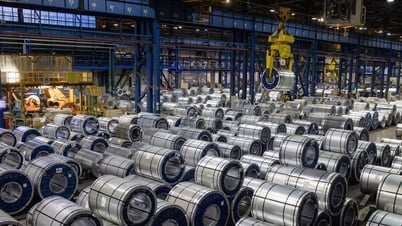
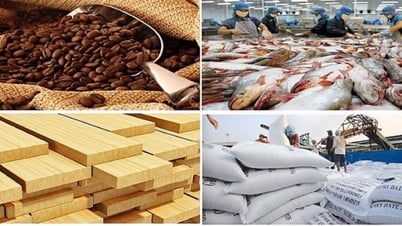
![[Photo] General Secretary To Lam begins official visit to Russia and attends the 80th Anniversary of Victory over Fascism](https://vphoto.vietnam.vn/thumb/1200x675/vietnam/resource/IMAGE/2025/5/8/5d2566d7f67d4a1e9b88bc677831ec9d)
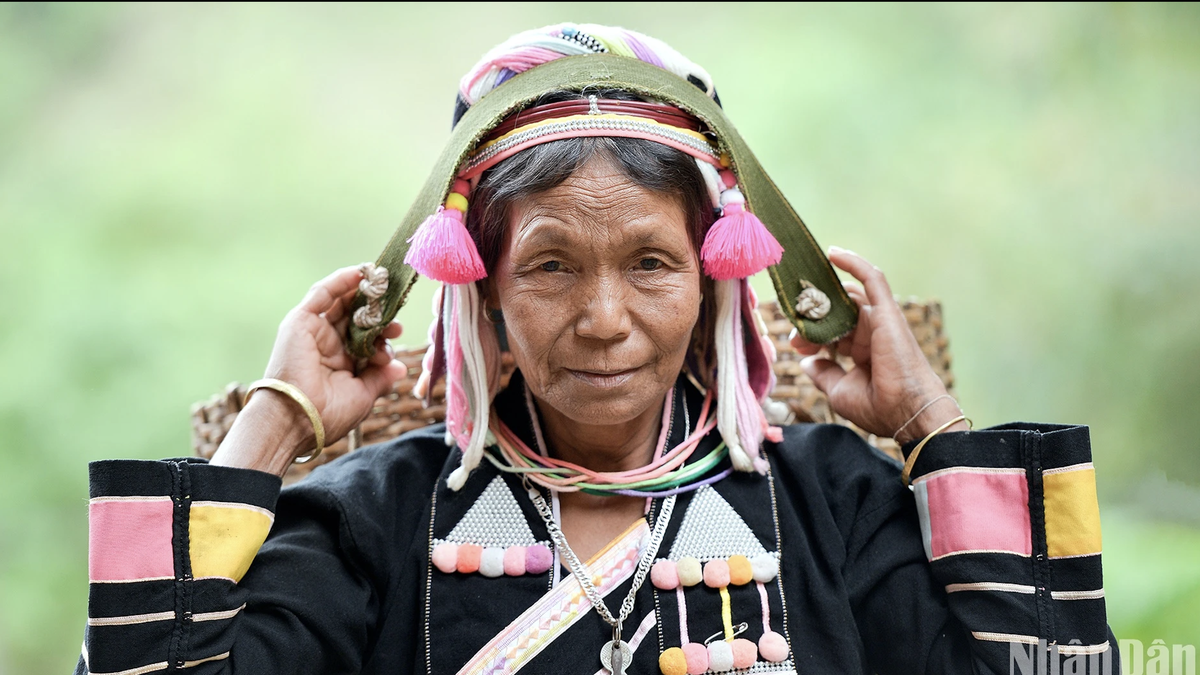
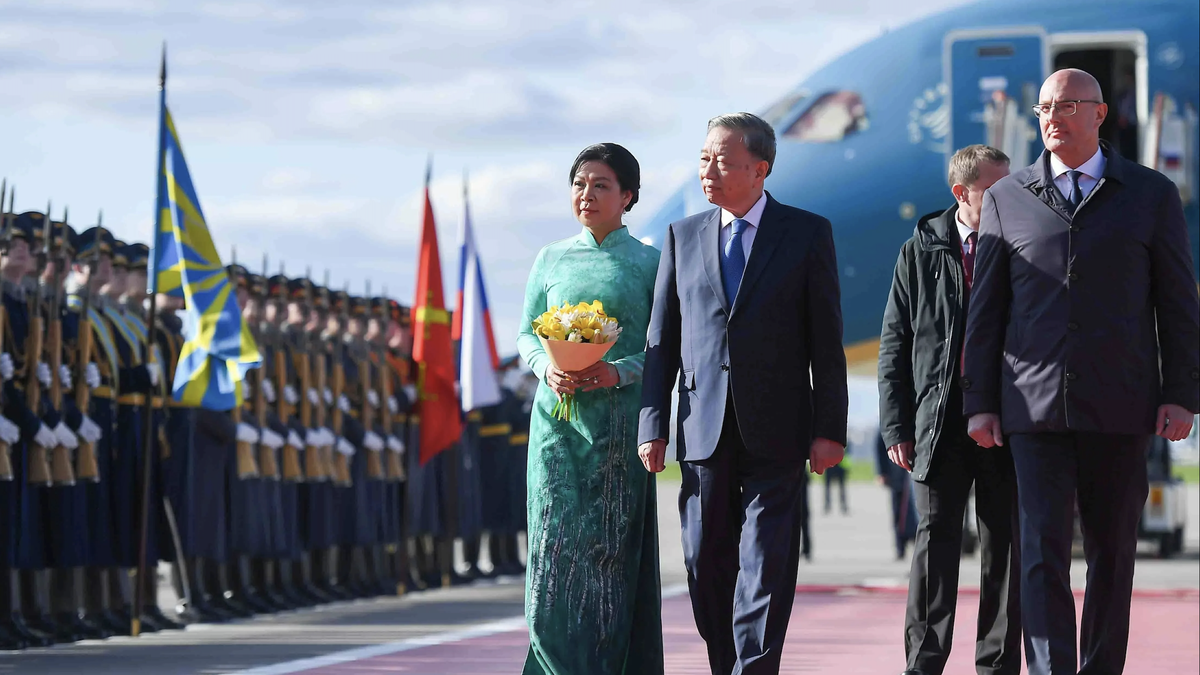










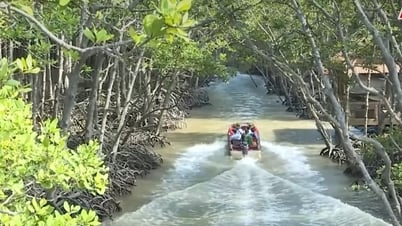























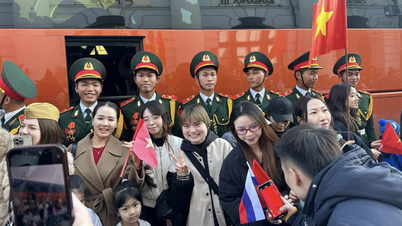


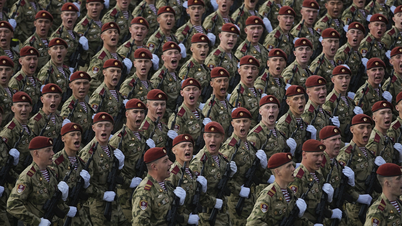






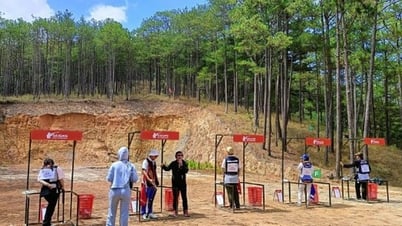




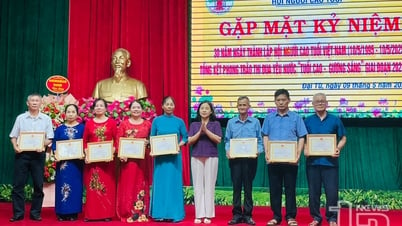














Comment (0)